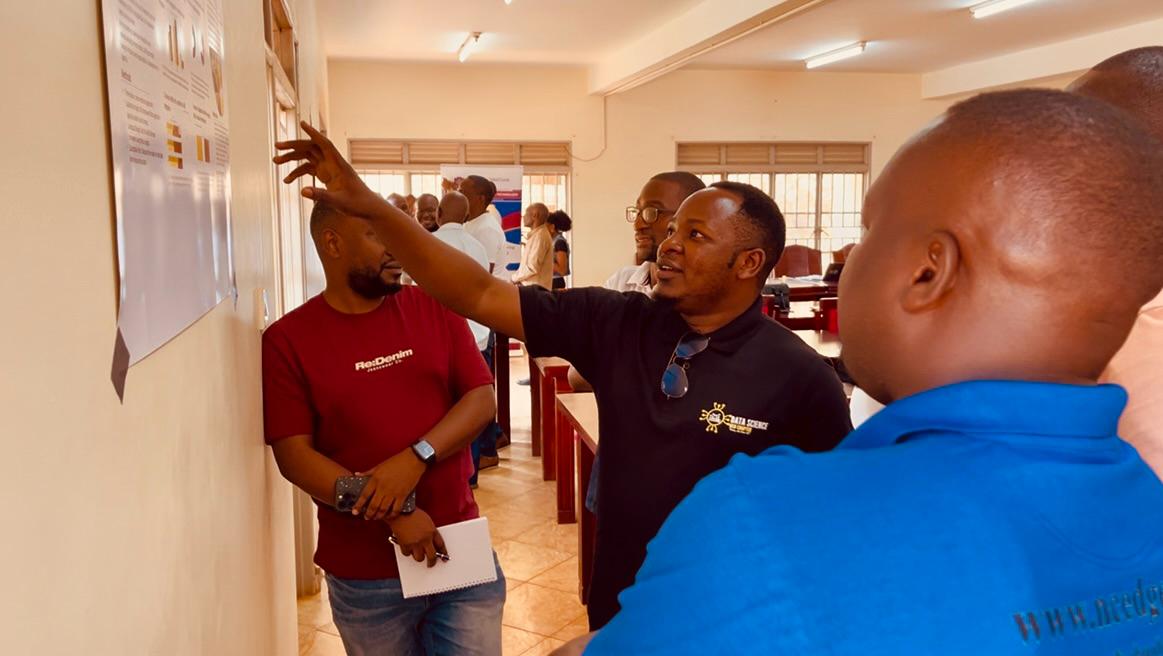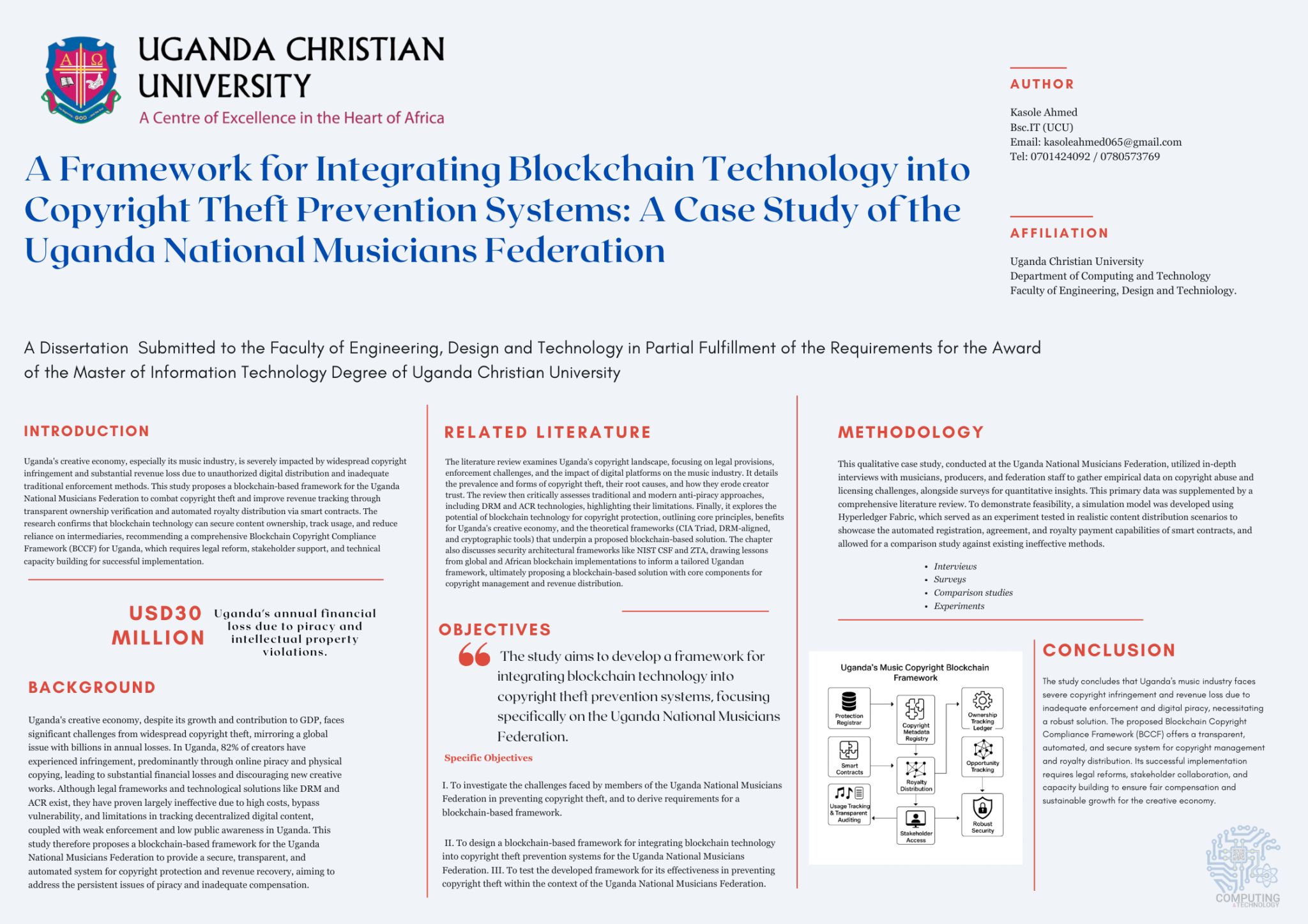Student Projects-postgraduates(2024)
Postgraduate Research Projects (2025)
Student's Research projects of year 2025
This includes bachelors, masters, pgd and phd features a math-based curriculum, beginning with calculus I. Our programmes also focus on balancing technical knowledge with understanding the conceptual framework of computer science. Topics range from data structures and algorithms to ethics and information assurance. Programmes include:
CONTEXTUALIZING AI ETHICS IN UGANDA’S MICROCREDIT
By Mr. Isabirye Emmanuel, Master’s in Data Science and Analytics
Contextualizing AI Ethics in Uganda’s Microcredit with Adaptive Sensitive Reweighting (ASR) – This research addresses ethical challenges in Uganda’s microcredit sector by introducing the Adaptive Sensitive Reweighting (ASR) model to mitigate algorithmic bias and promote fair access to credit. Unlike traditional credit scoring systems that disadvantage marginalized groups, ASR adaptively reweights sensitive features—such as collateral values and transaction history—during AI model training to ensure fairness while maintaining predictive accuracy. Collaborating with policymakers, lenders, and AI experts, the study defines context-specific fairness metrics and demonstrates a 15% increase in the inclusion of disadvantaged borrowers without compromising model performance. The research provides actionable policy recommendations for ethical AI adoption in microfinance, paving the way for equitable financial inclusion and sustainable development in Uganda.I am text block. Click edit button to change this text. Lorem ipsum dolor sit amet, consectetur adipiscing elit. Ut elit tellus, luctus nec ullamcorper mattis, pulvinar dapibus leo.
It is a long established fact that a reader will be distracted by the readable content of a page when looking at its layout. The point of using Lorem Ipsum is that it has a more-or-less normal distribution of letters, as opposed to using ‘Content here, content here’, making it look like readable English.
Lorem Ipsum as their default model text, and a search for ‘lorem ipsum’ will uncover many web sites still in their infancy. Various versions have evolved over the years, sometimes by accident.

A Framework for Integrating Blockchain Technology into Copyright Theft Prevention Systems
By Mr. Kasole Ahmed, Master of Information Technology (MIT)
This research introduces a novel blockchain-based framework aimed at tackling the persistent issue of copyright infringement within Uganda’s creative industry, specifically focusing on the Uganda National Musicians Federation. Uganda’s music sector has long faced challenges such as piracy, illegal content distribution, and opaque royalty collection processes, all of which erode the financial and creative value of artists’ work.
By leveraging the core strengths of blockchain—decentralization, transparency, immutability, and smart contracts—the proposed framework securely registers ownership of musical works, automates royalty distribution, and provides an auditable record of intellectual property transactions. The study involved analyzing existing copyright challenges, designing a blockchain architecture tailored to the Ugandan music industry, and validating its effectiveness through simulations and stakeholder feedback.
Key outcomes show that this solution can reduce piracy risks, improve artists’ revenue streams, and build trust among creators, distributors, and regulators. Ultimately, this work lays the foundation for integrating advanced technologies into intellectual property management, positioning Uganda as a regional leader in digital copyright protection.

